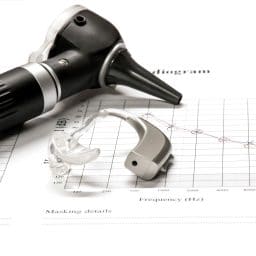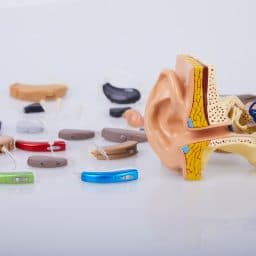The Difference Between Online & In-Person Hearing Tests

From online shopping to online dating and from accessing telehealth to learning a new skill on YouTube, the question is what can’t you do on the internet. In this day and age, you can even get a hearing test online. But are these tests really comparable to the care you get in an audiologist’s office?…
How to Get the Most Out of Your BTE Hearing Aids

Hearing aids come in a wide variety of styles. One of the most commonly prescribed ones due to its versatility is the behind-the-ear (BTE) hearing aid. BTEs consist of the shell, which houses the electronics, an earmold that delivers the amplified sound to your ears and tubing that connects these two parts. It’s important to…
How to Choose the Right Hearing Aid for Your Lifestyle

Do you have trouble hearing your conversation partner at Fog Harbor Fish House? Does your family complain you turn up the TV too loud? Do you have trouble talking on the phone? If so, you may have hearing loss. Fortunately, you can find relief through hearing aids. There are many different hearing aids on the…
The Link Between Diabetes, Hearing and Balance
Did you know diabetes can impact your hearing and balance? Diabetes can damage the nerves and blood vessels of the ear, which can have a negative effect on your balance and can cause hearing loss. In fact, hearing loss is twice as common in adults with diabetes.1 You are also at a greater risk of…
Hearing Amplifier Vs. Hearing Aids: Which Better Suits Your Hearing Loss?

Hearing loss is common, affecting an estimated 48 million people across the nation. But despite its prevalence, only one in five people who could benefit from hearing aids actually seeks treatment. There are many possible reasons for this, one of them being misconceptions and confusion about what options are available. Below we provide an overview…
Protect Your Hearing This Summer
It’s summertime, and the livin’ is easy. But outdoor activities can lead to noise-induced hearing loss, so people of all ages should take extra precautions to protect their hearing. Prolonged exposure to the sounds of lawn mowers, power tools, motorized vehicles, sporting events, concerts and fireworks can lead to irreversible hearing damage. Fortunately, you can take steps to…
Brain Fitness & Hearing Loss
Recent studies have shown a link between hearing loss and cognitive health. Patients with untreated hearing loss are at an increased risk for developing degenerative cognitive disorders such as dementia. Similarly, brain fitness software and training may also be able to help with hearing. A study to look at the effects of brain fitness software…
The Future of Hearing Devices: Deep Neural Networks & Artificial Intelligence
Hearing technology has come a long way over the years; however, one aspect of hearing loss that many hearing aids have difficulty addressing is trouble understanding speech in noise. Fortunately, some of today’s state-of-the-art devices can solve this problem utilizing deep neural networks (DNN) and artificial intelligence (AI). Sensorineural hearing loss causes difficulty understanding speech…
Sign Up for Our New Tinnitus Relief & Fall Prevention Programs
Have you been diagnosed with tinnitus? Studies have shown that ear-level sound generators can provide relief and improvement for tinnitus for people with normal hearing. These devices play soothing sounds to increase relaxation, improve sleep and distract from tinnitus to reduce its impact. Special sounds called fractal tones can also facilitate habituation to tinnitus so…
Psst! Have You Heard About the Whisper Hearing System?
SH Audiology is one of the first practices in the world to offer Whisper, a new hearing system that is constantly learning and improving. Designed by a team of artificial intelligence, hearing care, hardware and software experts, the Whisper hearing system comes with two earpieces, like a traditional hearing aid, and a unique, pocket-sized “brain”…
